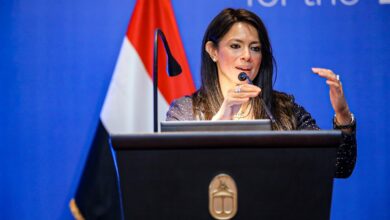Egypt has entered an unprecedented stage of sectarian tension, whereby the good relationship between Muslims and Christians has been rocked by a kind of sectarianism different from that of the 1980s and 1990s. Back then, the violence was perpetrated by religious groups and directed against the state and Christians. Today, violence is used by those in the street and the state is conspicuously absent from the scene.
The danger posed by this ‘new sectarianism’ cannot be suppressed under the usual call for national unity, which has unfortunately been our way of addressing the Muslim-Christian relationship in the past. We tend to ignore the changes that have taken place on the ground, transformations which can be blamed on the state and on Islamic and Christian discourse.
The fundamental reason behind the spread of sectarianism is the spread of hateful and sectarian discourse in the framework of religion. The state has failed to implement laws preventing such language.
New preachers have sprouted up everywhere in Egypt and outward manifestations of religiosity permeate society with the vast majority of women wearing the Islamic veil, with a pause in work for the noon prayer, and with small mosques vying for the loudest muezzins to shout, rather than chant, into the microphones. Meanwhile, the Ministry of Religious Endowments failed in its plan to unify the call to prayer, even though such a move would have restored tranquility to the call to prayer and to the souls of Egyptians.
It is rare to step into a shop, or take a taxi or bus without hearing the latest Salafi or conservative preacher. Even EgyptAir, inspired by recorded messages heard in elevators, has started playing the “riding supplication” before its planes take off. It would be much better if the Muslim cared enough to keep his building clean, as cleanliness is an Islamic principle.
It has also become quite normal to see men reading the holy Quran while working, or rather, instead of working, in the belief that doing so is bringing them closer to God.
Superficial religious programs have taken off on television and have injected principles into the minds of viewers that go against religion and preach hatred toward Christians.
Paradoxically, it never occurred to those advocating this type of religiosity to consider the effect this may have on all Egyptians who adopt such outward forms of religiosity, yet fail to propel the country towards political or economic development. It even seems as if such outward religiosity was meant to deflect attention away from serious issues.
Soon after, the ruling regime added its own touches by preventing participation in civil society. Egypt lacks active political parties, effective nongovernmental organizations and syndicates, and a genuine cultural and intellectual life. In need of nourishing their religious desires, Egyptians turn to football and gossip to fill the void.
This atmosphere has given way to a new culture that has diverted attention away from public affairs, and consequently, economic production has decreased, while corruption, crime, sexual harassment and piles of garbage have increased. Today, Egyptians are more interested in the Africa Cup of Nations than they are in the lives of the seven Egyptians killed in cold blood on Christmas Eve.
None of us can even imagine how Christians must feel, when they suddenly found themselves in an outwardly Islamized society, which has excluded them, either explicitly or implicitly. At the same time, this changed society has not offered them any kind of political or economic advancements to compensate for the insular and repellent cultural climate.
The overwhelming majority of Muslims in Europe who also suffer discrimination, are not ready to leave the countries where they have settled, because in Europe they live in better economic conditions and in states governed by law and democratic regimes. Therefore, they can tolerate some forms of discrimination. However, Christians in the Arab world do not see any reason to tolerate such discrimination.
How do minority groups feel when they find the majority of people speaking about the greatness of their religion while, in practice, they rarely apply the teachings of this religion. How do these different types of discrimination affect life in Egypt and what affect does it have on those who ride the metro and other means of public transportation, and on unveiled women, both Christian and Muslim? How about the discrimination that takes place in universities, public schools and the workplace, where there is little achievement to mitigate such prejudice?
There is a cultural atmosphere that repels Christians and pushes them into isolation. However, Christians have also fallen prey to a sectarian and insular discourse that has nothing to do with democracy or citizenship. This discourse, adopted by some churches and expatriate Copts, preaches hatred against Islam and Muslims.
Only when these groups come out of their shells, stand up against discrimination and establish a civil discourse that inspires all levels of society will they succeed
Translated from the Arabic Edition.




